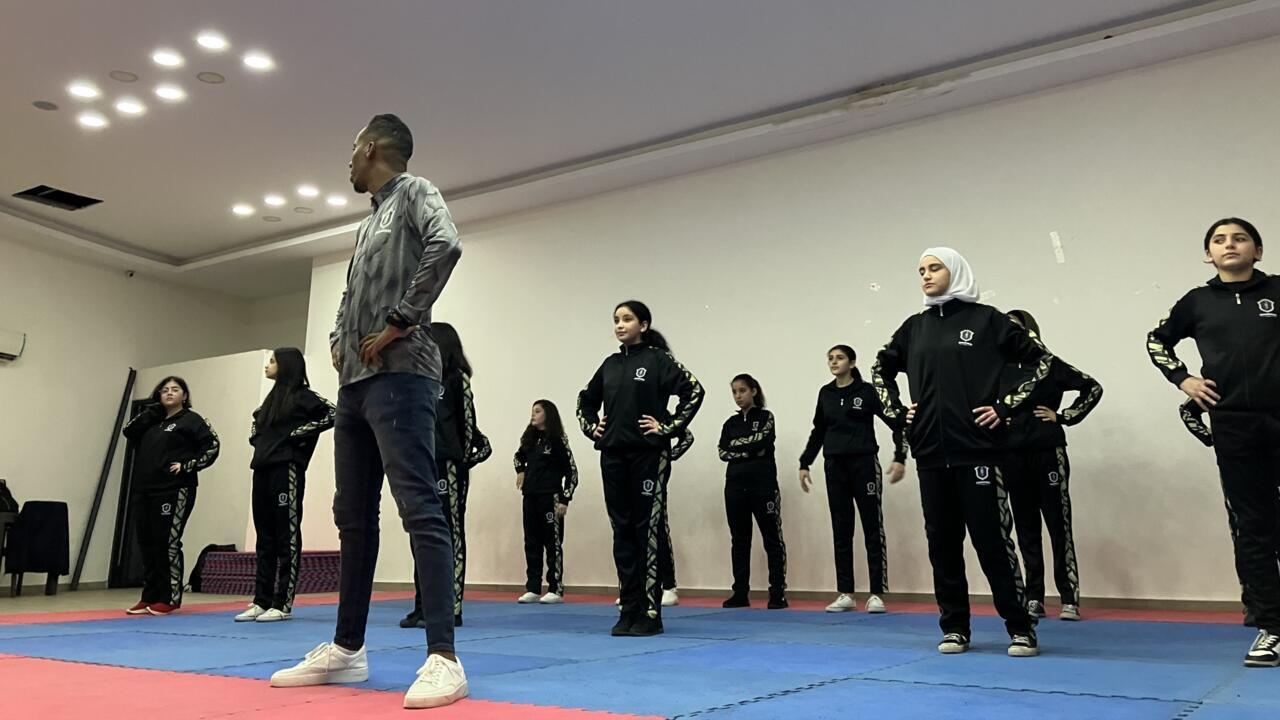women's day
In the Gaza Strip, dancing the dabkeh despite the obstacles
Audio 01:35
In this private room on the outskirts of Gaza City, around twenty young girls practice dabkeh, under the guidance of their coach, Mohammad Obaid.
© Alice Froussard / RFI
Text by: RFI Follow
2 mins
In the Gaza Strip, a Palestinian enclave where more than two million people are crowded into 365 square kilometres, one of the highest population densities in the world, wars follow one another and the blockade has lasted fifteen years.
More than elsewhere, the inequalities between women and men are enormous.
Despite the obstacles, despite the rules, some dance the dabkeh to ward off adversity.
Advertisement
Read more
With our special correspondent back from Gaza,
Alice Froussard
In this private room on the outskirts of Gaza City, around twenty young girls practice the dabkeh, this traditional dance from the Levant.
They hold hands, jump and tap the ground frantically with their feet, to music, repeating the same gestures to perfection, under the encouragement of their coach Mohammad Obaid, nicknamed “Samara”.
Despite the obstacles of a rather conservative society, despite the rules imposed by the local authorities of this strip of coastal land which prohibits this practice after a certain age, these girls and their trainer continue.
A way of resisting, of asserting themselves, of proving that they too can have the same rights.
“
One of the most important aspects of Palestinian culture is the dabkeh,
explains Mohammad Obaid.
So the students want to learn it, it's a strong message and a way to preserve Palestinian folklore.
But in Gaza, it's very hard for women, well for girls in general.
We are the only club here to welcome them.
»
Because Hamas, in power in the enclave since 2007, has set a strict rule.
It prohibits girls over the age of twelve from participating in public performances.
They cannot dance the dabkeh at outdoor festivals or perform on the beach.
This is what Khawla, thirteen years old, explains: "
Sometimes it annoys me, and then afterwards, I tell myself that one day it will change and that we girls will be left to dance outside this room.
I would like to know why the authorities prevent us from dancing.
There should be equality between girls and boys, we should all have the same rights.
»
So they dance despite the obstacles, make videos, perform in front of their families.
And they hope to inspire others.
"
It's also a form of resistance, and thanks to that, we have more and more requests from girls who want to join the team
," says the coach.
In this group, there are also two boys.
“
Because the dabkeh,
concludes Samara,
even if the authorities do not want to hear about it, traditionally, it is mixed
”.
Newsletter
Receive all the international news directly in your mailbox
I subscribe
Follow all the international news by downloading the RFI application
Continue reading on the same topics
Palestinian territories
Women
Womens rights
International Women's Day
Dance
Culture
Musics
Company

